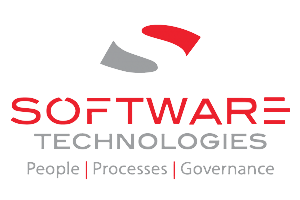
In the fast-paced business landscape of today, efficient governance and streamlined management are paramount to the success of any company. Traditional methods of managing operations, resources, and decision-making are no longer adequate to meet the demands of a rapidly evolving global market. This is where management software steps in, providing companies with the tools they need to transform their governance structures and achieve unprecedented levels of efficiency, transparency, and growth. Here, we will explore the inspiring success stories of companies that have leveraged management software to revolutionize their governance practices and emerge as industry leaders.
- IBM: Streamlining Corporate Governance
IBM, a global technology and consulting corporation, faced challenges in managing its intricate web of departments, subsidiaries, and operations spread across the world. In its pursuit of improved efficiency and transparency, IBM adopted an integrated management software solution that facilitated seamless communication between departments, standardized processes, and enabled real-time data sharing. This transformation allowed IBM to centralize its governance processes, making decision-making more agile and informed. By automating routine tasks, the company reduced manual errors and saved valuable time. The result? A more cohesive, well-coordinated governance structure that contributed to IBM’s continued success and innovation.
- Airbnb: Navigating Regulatory Compliance with Ease
As a disruptive player in the hospitality industry, Airbnb faced challenges related to local regulations and compliance across various jurisdictions. The company recognized the need for a comprehensive management software solution to handle the complex legal landscape while ensuring seamless interactions with hosts, guests, and local authorities. By implementing an integrated platform, Airbnb could effectively manage its property listings, host interactions, and compliance requirements. This not only streamlined their governance but also fostered trust among stakeholders and allowed the company to expand its global footprint.
- Walmart: Enhancing Supply Chain Management
Walmart, the retail giant, manages an extensive supply chain network involving suppliers, distribution centers, and retail outlets worldwide. To optimize this intricate web, Walmart adopted advanced management software that provided real-time insights into inventory levels, demand patterns, and transportation logistics. By integrating data from various sources, the software enabled Walmart to make informed decisions, reduce wastage, and minimize stockouts. This transformation in supply chain governance not only improved operational efficiency but also contributed to cost savings and a more sustainable business model.
- Tesla: Revolutionizing Project Management
Tesla’s journey to redefine the automotive industry required innovative approaches to project management and governance. To achieve its ambitious goals, the company employed management software to facilitate collaboration between various teams working on design, manufacturing, and distribution. This software enabled seamless communication, progress tracking, and issue resolution, allowing Tesla to rapidly iterate and adapt to market demands. The result was faster product development cycles, timely project deliveries, and a reputation for innovation that propelled the company to the forefront of the electric vehicle market.
The success stories of IBM, Airbnb, Walmart, and Tesla demonstrate the transformative power of management software in reshaping governance practices across diverse industries. By leveraging technology to enhance communication, automate processes, and gain valuable insights, these companies achieved higher levels of efficiency, transparency, and strategic decision-making. As businesses continue to evolve, management software will play an increasingly crucial role in enabling organizations to adapt, thrive, and lead in their respective domains. The lessons from these success stories underscore the importance of embracing technology-driven solutions to create a robust foundation for effective governance and sustained growth.
